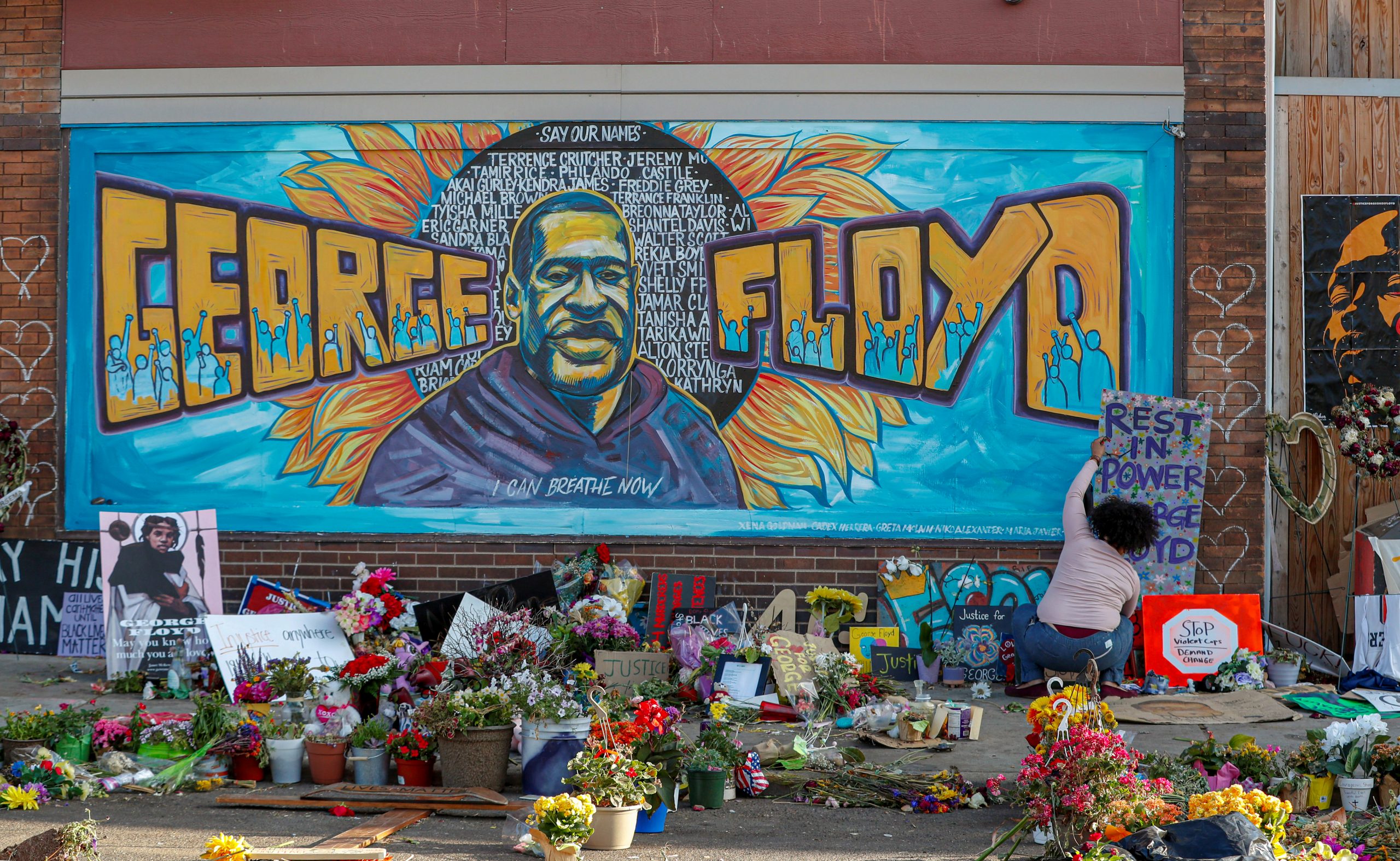Thursday marks one month since George Floyd, a 46-year-old Black man, died after a white police officer knelt on his neck for nearly nine minutes as Floyd lay on the pavement in Minneapolis, Minnesota.
Floyd’s death has sparked global protests about racial inequality and police brutality, and renewed pledges from some to fight racism.
May 25: Floyd dies in police custody. A video shot by a bystander and posted on Facebook shows him saying, “I can’t breathe” before he goes still.
May 26: Protests begin in Minneapolis; the four officers present at Floyd’s detention are fired.
May 27: Protesters throng streets around Minneapolis’s Third Precinct police station, chanting, “No justice, no peace” and “I can’t breathe.” Police use tear gas, plastic bullets and concussion grenades to keep the crowds at bay. A nearby Target is looted.
Protesters stream onto a highway in Los Angeles.
May 28: Minnesota Governor Tim Walz activates the National Guard.
May 29: Derek Chauvin, the officer who held Floyd down, is charged with third degree murder; President Donald Trump holds a news conference on China, but doesn’t answer questions on Floyd.
Protests spread to New York City, Atlanta and Washington, D.C., where the White House is temporarily locked down.
May 30: Multiple cities, including Atlanta, Los Angeles and Philadelphia, impose curfews after civil disturbances.
May 31: Tens of thousands of Americans protest across the country; some demonstrations erupt into arson and violence in the evening. A truck drives into protesters in Minneapolis. National Guard troops are called in to over a dozen states.
June 1: Protests over racial injustice spread oversea to Amsterdam, among other cities.
U.S. Park Police deploy tear gas and pepper balls to disperse peaceful protesters outside the White House, before Trump walks to a historic church to pose for a photograph holding a Bible.
June 3: Three former Minneapolis police officers implicated in Floyd’s death are charged with aiding and abetting second-degree murder and manslaughter.
June 4: Police in Buffalo, New York, are suspended after video shows them shoving a 75-year-old man, Martin Gugino, to the ground, with his head bleeding.
Virginia Governor Ralph Northam orders the removal of a statue of Confederate General Robert E. Lee in Richmond, the state capital; the statue becomes a focal point for demonstrators.
June 5: Washington, D.C.’s mayor emblazons “Black Lives Matter” on the street leading up to the White House.
NFL Commissioner Roger Goodell says the league was wrong not to listen to players who protested racism and police brutality earlier.
June 7: A statue of Edward Colston, who made his fortune as a West African slave-trader, is toppled in the English port city of Bristol.
Republican Senator Mitt Romney joins a march with evangelical Christians against racism.
In Seattle, a man drives his car into a crowd of protesters, then shoots and injures a demonstrator.
June 8: George Floyd’s casket is displayed in Houston, drawing thousands of mourners. Joe Biden, the Democratic presidential candidate, meets with Floyd’s family.
Congressional Democrats introduce police reform legislation, and kneel in the Capitol building.
Seattle police abandon a precinct located in the Capital Hill neighborhood. Activists rename the neighborhood the Capital Hill Occupied Protest (CHOP) area.
June 9: George Floyd is buried in Houston.
June 10: NASCAR bans the Confederate flag from racetracks and facilities.
June 12: The Minneapolis City Council votes to replace the police department with a community-led public safety system.
In Atlanta, Rayshard Brooks, a Black man, is killed by a police officer after falling asleep in a Wendy’s restaurant drive-through lane.
June 13: Protesters burn down the Wendy’s where Brooks was killed. Anti-racist demonstrators and counter-protesters clash in London.
June 15: British Prime Minister Boris Johnson announces a government commission on racism and ethnic disparities in education, health and criminal justice.
June 19: Americans commemorate Juneteenth.
Colorado becomes one of the first U.S. states to strip police officers of qualified immunity.
June 20: Trump holds a rally in Tulsa, Oklahoma, where white residents murdered an estimated 300 Black Americans 99 years ago. The rally doesn’t draw the crowd expected.
June 23: One of the three police officers involved in the shooting death of Breonna Taylor, a Black woman killed in Louisville, Kentucky when drug investigators burst into her home, is fired.
In Atlanta, Rayshard Brooks is mourned at a funeral. Natalie White is arrested after being accused of setting fire to the Wendy’s.
June 24: A Republican bill intended to reform U.S. policing fails in the Senate after civil rights leaders, activist groups and Senate Democrats call it irrevocably flawed.
(Reporting by Makini Brice and Heather Timmons; Editing by Leslie Adler)

























 Continue with Google
Continue with Google